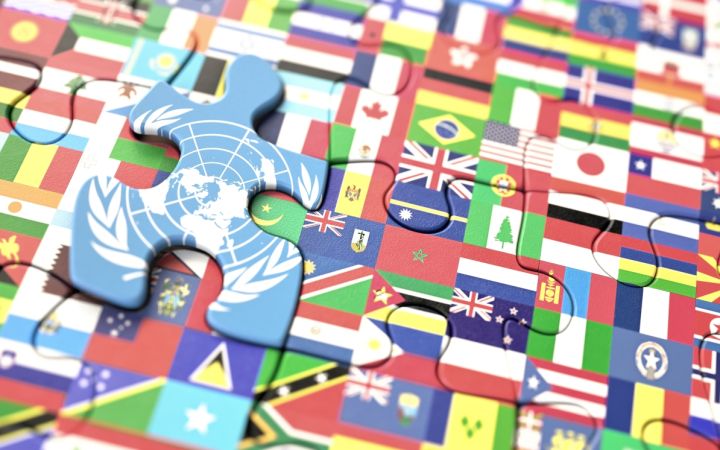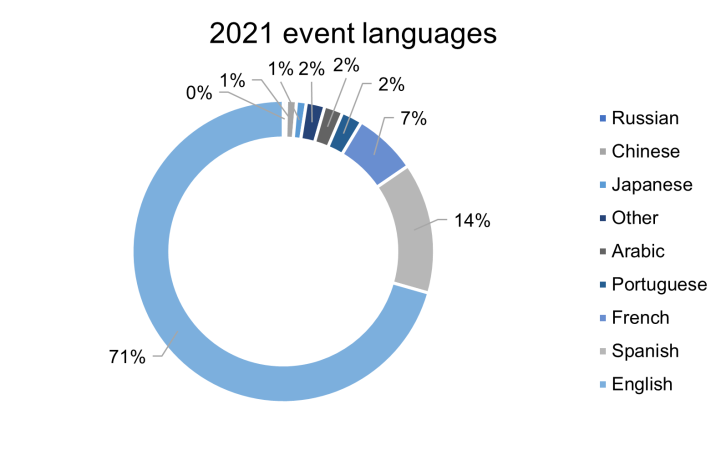In 2021, we had a quite busy year at UNITAR. We continued to expand our portfolio of free and open online courses, developed additional SDG 3 (good health and well-being)-related programming, concluded agreements with multiple new partners and donors, and we continued developing a great variety of training and capacity development events to empower participants from all over the world.
In numbers, 2021 was another record-breaking year for UNITAR, with 370,139 individuals across the world benefiting from our training services and 66 per cent taking part in activities with specific learning outcomes. While COVID-19 restrictions continued to affect activities planned to be delivered in-person, UNITAR leveraged its virtual learning environment, mobile learning and other available IT tools to continue its diverse array of learning services. Read the 2021 Results Report (PDF).
In 2021 we organized 991 training and learning events benefiting participants from Latin America and Caribbean, Asia and the Pacific, Africa and other regions of the world in various different languages, including the six official languages of the United Nations (Arabic, Chinese, English, French, Russian and Spanish) as can be seen below. Several 2021 events were organized in other languages such as Japanese, Portuguese, Hindi, Indonesian, Nepali, Dutch, Turkish, Polish, Thai, Khmer, Romanian, Ukrainian, Mongolian, Vietnamese, Armenian, Georgian and Azeri. Between 2018 and 2020, UNITAR also delivered events in Filipino and Laotian.
This June, the General Assembly once again re-affirmed that multilingualism, as a core value of the Organization, contributes to the achievement of the goals of the United Nations, as set out in Article 1 of the Charter of the United Nations (A/RES/76/268). An essential factor in harmonious communication among peoples, multilingualism is of particular importance to the United Nations and to us at UNITAR. By promoting tolerance, multilingualism ensures effective and increased participation of all in the Organization’s work, as well as greater effectiveness, better outcomes and more involvement. Multilingualism means much more than simply translating courses for us. We also try to involve local examples as much as possible.
We are committed to an even greater diversification of languages of the Institute’s programming in the future in order to reach the furthest behind first. Management continues with efforts to translate courses into other languages than English and to use local languages and to make courses locally relevant, when possible. Efforts to make UNITAR learning events more accessible to people with hearing and visual disabilities have also been made, with some training programmes including sign language and narrative audio (in different languages).



